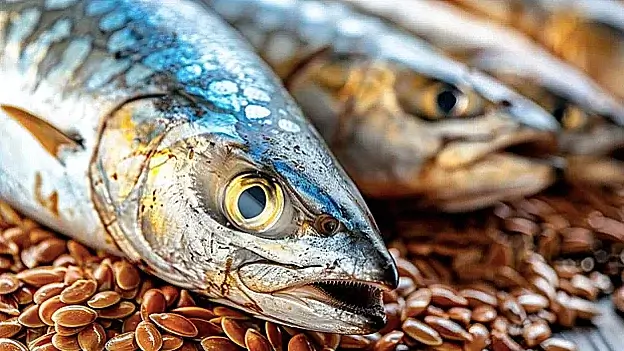Can a Low-Carb Diet Reverse Fatty Liver?

The Power of Dietary Choices: Small Shifts, Big Results
I had a patient who would roll his eyes at the mention of diet. When his liver enzymes came back alarmingly high, he admitted that he lived on quick carbs and sugary drinks, a common diet that he never imagined could harm him. This was when I introduced the possibility of a low-carb diet. For him, and many others, the results were eye-opening. This experience left me wondering: can a low-carb diet reverse fatty liver, or is it merely a piece of the puzzle?
Understanding Fatty Liver Disease and Its Implications
Fatty liver disease, also known as hepatic steatosis, is the accumulation of excess fat in liver cells. While this may sound harmless, fatty liver can progress to liver inflammation, fibrosis, and even cirrhosis. In its early stages, fatty liver is often reversible, especially with dietary intervention. But can a low-carb diet reverse fatty liver, or is it only one of many dietary tools?
One of the primary drivers of fatty liver is insulin resistance. When the body has a high intake of carbohydrates—especially refined sugars and processed foods—it can lead to persistent spikes in insulin, a hormone responsible for managing blood glucose levels. When cells become resistant to insulin, the body stores more fat in the liver, exacerbating the fatty liver condition. Reducing carbohydrate intake may help by directly addressing insulin resistance and potentially reversing liver fat accumulation.
How Does a Low-Carb Diet Influence Liver Health?
The mechanism of a low-carb diet's effect on liver health is both direct and indirect. A diet low in carbohydrates, particularly refined sugars and high-glycemic foods, forces the body to switch from using glucose as a primary energy source to utilizing stored fats. This shift, known as ketosis, can lead to decreased fat deposits in the liver over time.
When insulin levels are consistently lower, the body becomes more adept at using fat for fuel. For people with fatty liver disease, this process can be advantageous. So, when patients ask me, "can a low-carb diet reverse fatty liver," I explain that it can indeed help, but it requires commitment, balance, and monitoring.
Can a Low-Carb Diet Reverse Fatty Liver?
In recent years, several studies have examined whether low-carb diets can directly improve fatty liver disease. Findings suggest that low-carb diets can lead to a reduction in liver fat content. The main idea here is that by reducing carbohydrate intake, particularly the "quick-hit" sugars, we help the liver work more efficiently. Low-carb diets allow insulin levels to stabilize, leading to lower inflammation and a reduction in fat storage in the liver.
The primary focus is on balance—while low-carb eating may help, the types of fats and proteins consumed also matter. Healthy fats, such as those found in olive oil and avocados, and lean proteins contribute to improved liver health by avoiding excessive saturated fats.
A New Outlook on Eating: Sugar Down, Fiber Up
Reducing carbohydrate intake doesn’t mean cutting out all carbs. Fiber, a type of carbohydrate, plays a supportive role in liver health. High-fiber, low-starch vegetables like leafy greens, bell peppers, and broccoli aid digestion and help stabilize blood sugar levels. When people inquire, "can a low-carb diet reverse fatty liver?" I always emphasize the importance of fiber. Including fiber helps prevent spikes in blood sugar and promotes satiety, reducing the chances of overeating.
Can a Low-Carb Diet Be Sustained Long-Term?
While low-carb diets can benefit liver health, sustainability is key. A restrictive diet may lead to short-term gains but become difficult to maintain. When focusing on how a low-carb diet can reverse fatty liver, the emphasis should be on long-term, balanced approaches rather than drastic changes that are hard to maintain.
Creating a meal plan that includes lean proteins, healthy fats, and fiber-rich vegetables supports liver health and helps reduce the fat buildup associated with fatty liver. The goal is not necessarily extreme restriction but rather a thoughtful reduction in refined carbohydrates that lead to liver stress.
Incorporating Low-Carb, Liver-Friendly Foods
- Lean Proteins: Chicken breast, turkey, and fish provide essential nutrients without adding extra liver strain.
- Healthy Fats: Nuts, seeds, and olive oil contain healthy fats that support liver function and reduce inflammation.
- Low-Starch Vegetables: Bell peppers, spinach, and kale are low in starch and high in fiber, supporting healthy digestion and blood sugar stability.
- Berries and Citrus Fruits: Lower in sugar than other fruits, berries, and citrus provide antioxidants that benefit liver health.
Beyond Diet: The Role of Exercise and Lifestyle in Liver Health
While diet plays a central role in liver health, regular exercise amplifies these benefits. Physical activity can help improve insulin sensitivity and reduce visceral fat, both of which impact fatty liver disease. Incorporating activities like walking, swimming, or resistance training has positive effects on metabolic health and enhances the liver's ability to process nutrients efficiently.
Final Thoughts: Making the Commitment
When faced with the question, "can a low-carb diet reverse fatty liver?" the answer, backed by research, is often yes—at least in part. The combination of dietary changes, lifestyle shifts, and consistent physical activity plays a crucial role in reversing fatty liver. With each meal, we have the chance to make choices that support or hinder our liver health. By committing to these adjustments, it’s possible to give the liver a much-needed break and allow it to recover and regenerate.
Share this article

Dr. Nico Fabian, MD
I'm a physician and board-certified internist who completed my Internal Medicine training at St. Luke’s Medical Center in Quezon City. See Full Bio.
-
1. T.D. Noakes, J. Windt. Evidence that supports the prescription of low-carbohydrate high-fat diets: a narrative review.
-
2. A.M. Goss, S. Dowla, M. Pendergrass, A. Ashraf, M. Bolding, S. Morrison, et al. Effects of a carbohydrate-restricted diet on hepatic lipid content in adolescents with non-alcoholic fatty liver disease: a pilot, randomized trial.
-
3. T.V. Fiorentino, E. Succurro, A. Sciacqua, F. Andreozzi, F. Perticone, G. Sesti. Non-alcoholic fatty liver disease is associated with cardiovascular disease in subjects with different glucose tolerance.
-
4. Nonalcoholic fatty liver disease and low-carbohydrate diets. York LW, Puthalapattu S, Wu GY. Annu Rev Nutr. 2009;29:365–379.
-
5. Short-term weight loss and hepatic triglyceride reduction: evidence of a metabolic advantage with dietary carbohydrate restriction. Browning JD, Baker JA, Rogers T, Davis J, Satapati S, Burgess SC. Am J Clin Nutr. 2011.
-
6. The effect of a low-carbohydrate, ketogenic diet on nonalcoholic fatty liver disease: a pilot study. Tendler D, Lin S, Yancy WS Jr, Mavropoulos J, Sylvestre P, Rockey DC, Westman EC. Dig Dis Sci. 2007.
The Science Behind the Ketogenic Diet and Liver Health Years ago, a patient walked into my office, weary of traditional diets that hadn’t done much...
Can Fiber Reduce Liver Fat Accumulation? A few years back, I had a patient—a self-proclaimed “meat and potatoes guy” who’d always sworn off...
How the DASH Diet Supports Liver Health In my years as a medical doctor, I’ve encountered countless patients grappling with liver health issues.

You might enjoy more articles by
Dr. Nico Fabian, MD
 Disease
Disease Diets
Diets Recipes
Recipes Supplements
Supplements Management
Management Calculators
Calculators Quizzes
Quizzes Glossary
Glossary























